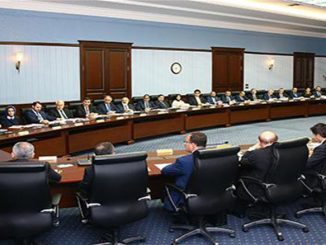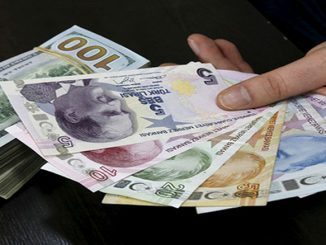
BY: Erdal Tanas Karagöl*
It is understood that the Turkish economy surprised credit rating agencies after July 15. Because these agencies did not expect the economy to pick itself up and continue to grow after a coup attempt.
After the economy picked itself up in a very short time and all problems were successfully handled, both the credit rating agencies and finance companies (that despise Turkey) were stunned not knowing what to do next.
Therefore, Moody’s decision is obviously one that was made with the input of many banks and finance companies and is an operation attempt against Turkey’s economy.
The decisions are political and absurd
Is this situation one we haven’t heard of before? Of course not.
Very much like today, the decisions made by these agencies in the past were also unfair and non-objective. The same situation is apparent when we look at the reason behind Moody’s dropping Turkey’s rating:
According to Moody’s, “basic macroeconomics have weakened; there are problems related to the current deficit and economic growth rates; and there are no signs of improvement in the next two to three years.”
The reasons given by this organization, which launches itself as an international organization, are too absurd and nonsense to take notice.
Why nonsense?
We do not need to look too far back for an answer. Many banks and finance companies that were given high ratings by this agency in 2008 went bankrupt just a day after being rated. If a bank, which is given a high rating by a credit rating agency, goes bankrupt in just one day, how can they be believable if they say Turkey will not make progress in the next two to three years?
Besides, they have said this at a time in which Turkey walked out of a global economic crisis, continues to grow since 2009, has achieved a growth rate of 3.9 percent in the first half of 2016, has brought the current deficit to a sustainable level and successfully cleaned all the residue that remained from the failed coup attempt.
Turkey has become one of the four countries in the G20 and the OECD to show the highest level of growth. What else could we ask for?
If Moody’s doesn’t have just and objective economic reasons when decreasing Turkey’s rating, what is their real reason?
Turkey has achieved much without an ‘investable’ rating
One other thing that needs to be stated is that by Turkey not having an “investable” rating, it is not the end of the world. The number of fund-holders who make decisions based on the decisions of these agencies is very low.
The important thing is to trust our economy and our economic indicators and improve these economic indicators. More importantly, we need to focus on lowering the CDS premiums that represent the dynamics of economics.
Turkey made all economic breakthroughs and improvements between 2002 and 2012 without an investable rating from any credit rating agency – as a matter of fact, it accomplished this in spite of these agencies.
This rating of confidence is way more valuable and precious than any rating given by credit rating agencies.



